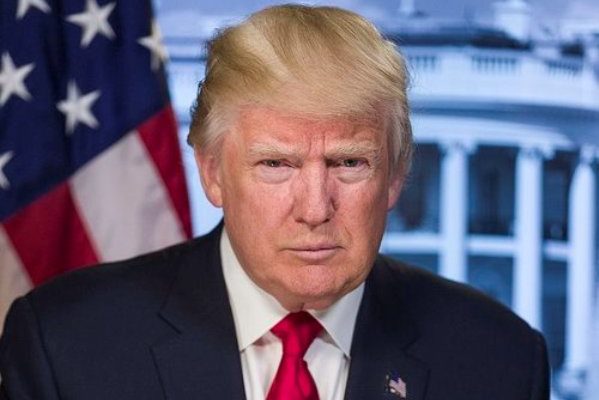Trump’s statement on International Holocaust Remembrance Day was “incredibly inclusive” and “took into account all of those who suffered,” and therefore did not mention the Jews, his spokeswoman explained.
US President Donald Trump vowed to help prevent the forces of evil from triumphing over good in his statement marking Friday’s International Holocaust Remembrance Day, on the 72nd anniversary of the liberation of the Auschwitz-Birkenau concentration camp.
“I pledge to do everything in my power throughout my presidency, and my life, to ensure that the forces of evil never again defeat the powers of good,” Trump said. “Together, we will make love and tolerance prevalent throughout the world.”
His statement, however, made no mention of Jews or anti-Semitism.
“It is with a heavy heart and somber mind that we remember and honor the victims, survivors, heroes of the Holocaust,” said Trump. “Yet, we know that in the darkest hours of humanity, light shines the brightest. As we remember those who died, we are deeply grateful to those who risked their lives to save the innocent.”
On Saturday, following a backlash, the White House explained that the Jews were not the only group targeted and murdered by Adolf Hitler’s Nazi regime, and therefore not exclusively mentioned.
“Despite what the media reports, we are an incredibly inclusive group and we took into account all of those who suffered,” White House spokeswoman Hope Hicks told CNN.
The victims, she said, included “priests, gypsies, people with mental or physical disabilities, Communists, trade unionists, Jehovah’s Witnesses, anarchists, Poles and other Slavic peoples, and Resistance fighters.”
While some criticized the omission, World Jewish Congress President Ron Lauder on Saturday repudiated those who made an issue out of Trump’s statement.
“It does no honor to the millions of Jews murdered in the Holocaust to play politics with their memory,” said Lauder.
“Any fair reading” of the statement, he said, “will see it appropriately commemorates the suffering and the heroism that mark that dark chapter in modern history,” he said. “There are enough real anti-Semitism and true threats facing the Jewish people today. Our community gains nothing if we reach a point where manufactured outrages reduce public sensitivity to the real dangers we confront.”
History Should Be a Lesson
Meanwhile, other world leaders spoke of the rise of dangerous extremism, including anti-Semitism, in their statements for International Holocaust Remembrance Day.
“Tragically, and contrary to our resolve, anti-Semitism continues to thrive,” UN Secretary-General Antonio Guterres said in statement. “We are also seeing a deeply troubling rise in extremism, xenophobia, racism and anti-Muslim hatred. Irrationality and intolerance are back.”
Guterres pledged to “be in the front line of the battle against anti-Semitism and all other forms of hatred.”
Germany’s outgoing foreign minister, Frank-Walter Steinmeier, said that his country will never forget the crimes committed by the Nazi regime. “History should be a lesson, warning and incentive all at the same time. There can and should be no end to remembrance,” he said.
Polish Prime Minister Beata Szydlo, who attended a ceremony with Holocaust survivors at the site of the former Auschwitz-Birkenau death camp in Poland, said that the suffering of the Holocaust’s victims was a “wound that…can never be healed and should never be forgotten.”
“No one can understand this suffering,” Szydlo said. “I want a message to go out again from this place today that what happened in this German camp was evil… Memory and truth are our responsibility, they are our weapons against evil.”
By: JNS.org and World Israel News Staff





